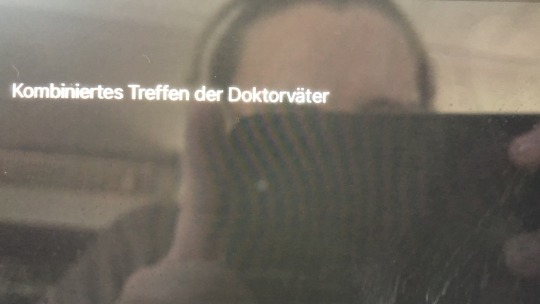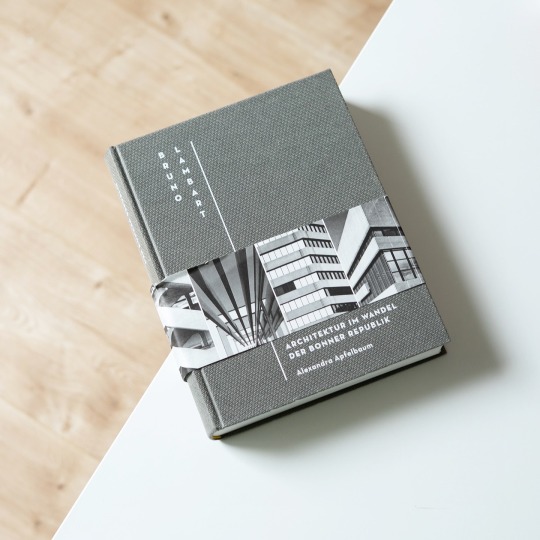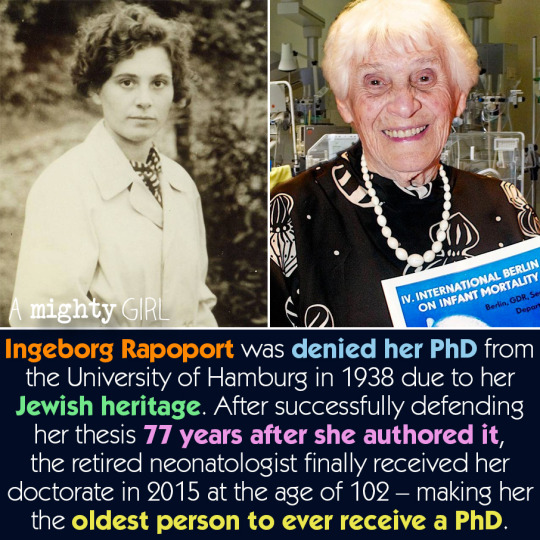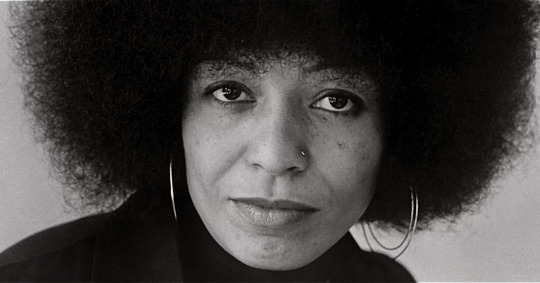#study phd in germany
Explore tagged Tumblr posts
Text
0 notes
Text



Some flowers and the funny term for PhD supervisor in German.
#lustig
#academia#dark academia#early music#light academia#study#study aesthetic#study motivation#studyblr#nature#germany#phd life#phd student#phd research#phdjourney
6 notes
·
View notes
Text

Just a lazy healthy dinner day 🙂🤌🏻
#quantum man#studyblr#study motivation#research#life#phd life#germany#scientist#science#healthy food
3 notes
·
View notes
Text

1 / 100 days of productivity - 25.8.2023
Not so aesthetic photo but my reality of homeoffice.
I love my lavalamp ( which my mother bought me for christmas last year) an the dried roses my fiance bought me (which i dried one by one afterwards so i dont have to throw them away).
Plants grow well in my flat as its really bright in here (but sadly also very hot atm here in germany with 32° in the afternoon).
The Chair is also a birthday gift from my fiance and i love it so much. Its so beautiful and comfy.
The book is 'Blink - the power of thinking without thinking' from Malcom Gladwell and on top is my precious phone tresor which i use lately to lock my phone away. I can really recommend this tool. Even if i think i dont look at my phone often... it just releases some extra concentration if i know its not accessible.
I just started my literature analysis for my state of the art paper on control ☺️. Hopefully i will be finished in December and can hand in the paper for revision in january.
At the moment i really enjoy the 'study with me videos' from Sean Study on Youtube! (As you can see).
And i could never work without at least two screens (also got them at my office).
I wish you good luck and endurance on your (new and ongoing) study projects.
Lots of Love from Germany!
#100 days of productivity#germany#phd studyblr#phdjourney#ix#phdblr#study environment#studyblr#study desk#study advice
6 notes
·
View notes
Text
17.04
big fluffs as we enter frankfurt.
1 note
·
View note
Text
if there's one thing to learn from me. it's that it's a complete waste of time to learn german. please don't do it
#situations where you should learn German:#youre doing a phd on hegel#you want to study STEM for free in Germany#you are a refugee and have no agency over staying in Germany#struggling to think of more..... If none of these apply to you then do not learn german
1 note
·
View note
Text
"A study looking at the bearers of artificial hearts found that a subset of them can regenerate heart muscle tissue—the first time such an observation has ever been made.
It may open the door to new ways to treat and perhaps someday cure heart failure, the deadliest non-communicable disease on Earth. The results were published in the journal Circulation.
A team of physician-scientists at the University of Arizona’s Heart Center in Tucson led a collaboration of international experts to investigate whether heart muscles can regenerate.
According to the Centers for Disease Control and Prevention, heart failure affects nearly 7 million US adults and is responsible for 14% of deaths per year. There is no cure for heart failure, though medications can slow its progression. The only treatment for advanced heart failure, other than a transplant, is a pump replacement through an artificial heart, called a left ventricular assist device, which can help the heart pump blood.
“Skeletal muscle has a significant ability to regenerate after injury. If you’re playing soccer and you tear a muscle, you need to rest it, and it heals,” said Hesham Sadek, director of the University’s Sarver Heart Center.
It was previously thought that when a heart muscle is injured, it could never grow back.
“Irrefutable evidence of heart muscle regeneration has never been shown before in humans,” he said. “This study provided direct evidence.”
The project began with tissue from artificial heart patients provided by colleagues at the University of Utah Health and School of Medicine led by Stavros Drakos, MD, PhD, and a pioneer in left ventricular assist device-mediated recovery.
Teams in Sweden and Germany used their innovative method of carbon dating human heart tissue to track whether these samples contained newly generated cells. The investigators found that patients with artificial hearts regenerated muscle cells at more than six times the rate of healthy hearts.
“This is the strongest evidence we have, so far, that human heart muscle cells can actually regenerate, which really is exciting, because it solidifies the notion that there is an intrinsic capacity of the human heart to regenerate,” Sadek said.
“It also strongly supports the hypothesis that the inability of the heart muscle to ‘rest’ is a major driver of the heart’s lost ability to regenerate shortly after birth. It may be possible to target the molecular pathways involved in cell division to enhance the heart’s ability to regenerate.”
In 2011, Sadek published a paper in Science showing that while heart muscle cells actively divide in utero, they stop dividing shortly after birth to devote their energy to pumping blood through the body nonstop, with no time for breaks.
In 2014, he published evidence of cell division in patients with artificial hearts, hinting that their heart muscle cells might have been regenerating because they were able to rest.
These findings, combined with other research teams’ observations that some artificial heart patients could have their devices removed after experiencing a reversal of symptoms, led him to wonder if the artificial heart provides cardiac muscles the equivalent of bed rest like a person needs when recovering from injury.
“The pump pushes blood into the aorta, bypassing the heart,” he said. “The heart is essentially resting.”
Sadek’s previous studies indicated that this rest might be beneficial for the heart muscle cells, but he needed to design an experiment to determine whether patients with artificial hearts were actually regenerating muscles.
Next, Sadek wants to figure out why only about 25% of patients are “responders” to artificial hearts, meaning that their cardiac muscle regenerates.
“It’s not clear why some patients respond and some don’t, but it’s very clear that the ones who respond have the ability to regenerate heart muscle,” he said. “The exciting part now is to determine how we can make everyone a responder, because if you can, you can essentially cure heart failure.
“The beauty of this is that a mechanical heart is not a therapy we hope to deliver to our patients in the future—these devices are tried and true, and we’ve been using them for years.”"
-via Good News Network, December 31, 2024
#cw death#heart#heart failure#biology#heart disease#public health#medical news#medical technology#cell biology#cardiology#medicine#health#good news#hope
455 notes
·
View notes
Text
✨💗HELLO 💗✨
My name is Mack and I'm a grad student from Germany. I have a background in linguistics, language studies and translation studies. I'm a first year PhD student in German studies. I'm also a Teaching Assistant.
I use they/them in English and hen/er/sie in German. For all other languages, improvise.
I speak English and German and my Spanish is... somewhere. I love dabbling in different languages.
You can expect posts about languages, linguistics, translation, subtitles, film and literature, teaching, grad school, German language and culture and a lot of resources. I'm mostly known for my MEGA folder full of study resources which was affected by a copyright strike on July 12th 2024. I'm working on getting it back online.
I have several side blogs: @poems-from-around-the-world (international poetry), @movietonight (the typical sideblog for memes, fandoms and cute animals) and @final-girlboy (horror) @yiddish-shmues (yiddish and judaism)
My letterboxd is salvabonaparte
You can support me on ko-fi if you want.
A Playlist for Hope in these trying times
Multilingual Music
403 notes
·
View notes
Text


He always regarded architecture as a cultural contribution to society: Bruno Lambart (1924-2014), a very interesting protagonist of postwar architecture in Germany. Lambart studied architecture at Technische Hochschule Stuttgart from 1946 until 1951 with Günter Wilhelm, himself one of postwar Germany's primary promoters of modern school architecture, being one of his professors. Following his graduation he established a partnership with Günter Behnisch in Düsseldorf that lasted until 1959 and brought about a number of beautiful schools and public buildings, among them the former teacher's college in Münster, realized between 1956 and 1958. After dissolving their partnership, Lambart continued to design public and especially educational buildings with the former mensa and library of Ruhr University Bochum being his most prominent designs.
In 2017 architectural historian Alexandra Apfelbaum published her PhD thesis „Bruno Lambart - Architektur im Wandel der Bonner Republik“ with Verlag Kettler, the first in-depth study of the life and work of this significant architect of the public sector. As the book's subtitle indicates it doesn’t solely focus on describing the work and career of Bruno Lambart but also takes into account the influence of the changing political and architectural on Lambart’s work. Due to his extensive involvement with the public sector, Lambart probably called for this additional viewing angle: beyond the aforementioned buildings he designed town halls, civic centers and administrative buildings, always at the service of citizens and users. These buildings are also presented in the comprehensive work catalogue in the back of the book that in addition to illustrations, plans, models and a descriptive text also include, where available, further literature, a handy feature for future research on the buildings and the architect.
With the present monograph Alexandra Apfelbaum has added an important and very detailed publication to the research of German postwar architecture that moreover is highly readable and nicely designed. Highly recommended!
#bruno lambart#monograph#architecture#germany#nachkriegsarchitektur#nachkriegsmoderne#architecture book#book#architectural history
22 notes
·
View notes
Text

Ingeborg Rapoport became the world's oldest person to receive a doctorate degree nearly 80 years after she was denied her PhD at the University of Hamburg for "racial reasons" due to her Jewish heritage. In 2015, the then 102-year-old Rapoport at long last had the opportunity to defend her doctoral thesis on diphtheria before an academic committee, 77 years after she completed it. After she aced her oral exam, her PhD was approved and she was awarded her degree at a special ceremony in Hamburg.
Rapoport was 25 years old when she submitted her thesis on diphtheria, an infectious disease that was a leading cause of death among children at the time. Her professor praised her work but, as Rapoport told The Wall Street Journal, "I was told I wasn’t permitted to take the oral examination." Although she was raised as a Protestant, Rapoport's mother was Jewish which, according to the Nazis, made her “a first-degree crossbreed” and ineligible for academic advancement. “My medical existence was turned to rubble,” she recalled. “It was a shame for science and a shame for Germany."
That year, she emigrated penniless to the US where she did several internships at hospitals and eventually received her M.D. from the Women’s Medical College of Pennsylvania. After working for several years in the US and starting a family, she returned to Europe and founded the first neonatology clinic in Germany at Berlin’s Charité Hospital. Reflecting on her journey, she said, "I have never felt bitterness. I’ve been shockingly lucky in all this. For me it all came out well: I had my best teachers in the U.S., I found my husband, I had my children.” But, over time, she began to wonder about the possibility of receiving her long-denied degree.
A Hamburg colleague of her son learned about her story and presented her case to the current dean of the medical school, Dr. Uwe Koch-Gromus. Koch-Gromus was determined that Rapoport should complete her degree -- and that she should earn it, not be granted an honorary PhD, even though the university’s legal department said that was the simplest solution. Koch-Gromus arranged for Rapoport to do an oral examination on diphtheria, the subject of her original paper, and she began studying up on the past 70 years of diphtheria research. After her exam, Koch-Gromus said, “Frau Rapoport has gathered notable knowledge about what’s happened since then. Particularly given her age, she was brilliant.”
Rapoport, who passed away in 2017 at the age of 104, was thrilled to receive her degree and pleased that the university amended this injustice at long last. Koch-Gramus, she said, “has made a great effort to show that things are now different in Germany.” Most importantly to Rapoport, however, was the chance to remember those who lost their lives many years ago: "I am happy and proud, but this is not about me. This is in commemoration of those who did not make it this far."
52 notes
·
View notes
Text
A Rundown of Henry Kissinger's Life
“Once you’ve been to Cambodia, you’ll never stop wanting to beat Henry Kissinger to death with your bare hands. You will never again be able to open a newspaper and read about that treacherous, prevaricating, murderous scumbag sitting down for a nice chat with Charlie Rose or attending some black-tie affair for a new glossy magazine without choking. Witness what Henry did in Cambodia – the fruits of his genius for statesmanship – and you will never understand why he’s not sitting in the dock at The Hague next to Milošević. While Henry continues to nibble nori rolls and remaki at A-list parties, Cambodia, the neutral nation he secretly and illegally bombed, invaded, undermined, and then threw to the dogs, is still trying to raise itself up on its one remaining leg.”
--Anthony Bourdain (2018)
It's difficult to be precise, but all told Henry Kissinger killed hundreds of thousands of civilians in pursuit of American business interests.
EARLY LIFE
Henry Kissinger was born in 1923 as Heinz Kissinger in Fürth, Bavaria, Germany, to a German-Jewish family. Throughout his youth, he was relentlessly and violently harassed and discriminated against by members of the Hitler Youth and authorities. At the age of 15, Kissinger and his family fled Nazi Germany, settling in New York City. He finished high school at George Washington High School in NYC and began studying accounting at the City College of New York, but his undergraduate studies were interrupted in 1943 when he was drafted into the US army.
In the army, fluent German speakers were in short supply, so Kissinger was quickly assigned to military intelligence. During the American invasion of Germany, he worked to set up civilian administration of conquered cities and tracked down Gestapo officers as a Special Agent of the Counter Intelligence Corps. He received the Bronze Star Medal
After his time in the army, Kissinger returned to his studies. He graduated summa cum laude in political science from Harvard College, as well as his Masters and PhD. He taught at Harvard, and his studies focused on international 'legitimacy', when an international order is widely accepted by international leaders, without regard to public opinion or morality.
POLITICS
Beginning in the 1950s, Kissinger began to be more active on the political stage. He was a consultant for the National Security Council and a study director for the Council of Foreign Relations. He notably was against Eisenhower's massive retaliation nuclear doctrine, where the United States would respond to a nuclear attack with a much, much greater nuclear attack. Instead, Kissinger advocated the use of tactical nuclear weapons on a regular basis in more wars.
In the 1960s, Kissinger began working with Republicans running for office as an advisor in foreign affairs. He contributed to the Nixon campaign, and when Nixon took office in 1969, Kissinger was appointed as National Security Advisor, and later Secretary of State. As a diplomat, Kissinger heavily used Realpolitik, the in-fashion Cold War approach focusing on pragmatism and realistic outcomes rather than ideological or moral purity. In international politics, it largely has to do with obtaining and maintaining power on the world stage.
Kissinger focused on relaxing US tensions with the USSR and China, leading an American foreign policy that supported Taiwan on the face but in the shadows removed all support for Taiwan and essentially waited for it to fall apart.
In 1974, he directed the National Security Study Memorandum 200: Implications of Worldwide Population Growth for U.S. Security and Overseas Interests (NSSM200), sometimes called the "Kissinger Report" the official United States policy for many years, though it remained classified until the 1990s. The Kissinger Report advocated for population control in undeveloped nations to ensure easy resource extraction and protect American business interests abroad. Projects were designed to reduce fertility while keeping up the appearance of improving quality of life--the plan specifically attempted to avoid an appearance of "economic or racial imperialism". Birth rate was particularly noted due to concerns about an adequate global food supply and because young people more readily fight back against corruption and imperialism. The Report also brought up increasing abortion rates as a method of obtaining this goal.
In 1975, policies based on the Report went into affect. The National Security Council would recommend withholding food and using military force to prevent population growth, prioritizing aid for small families, and even paying people to get sterilized. Thirteen countries were named as particularly problematic to US interests. Of note, Nigeria lost development and the United States took control of Nigerian resources, and the United States Agency for International Development (USAID) was responsible for some of the 300,000 forced sterilizations in Peru--largely impoverished or indigenous women--during the Fujimori administration. The Fujimori government has been accused of crimes against humanity by the International Criminal Court for these abuses, and today the Peruvian economy suffers due to the low population resulting from these sterilizations.
ACTIONS IN SOUTHEAST ASIA
The Vietnam War had started back in 1955. Kissinger had originally supported it, but as time dragged on began to view it as harming American prestige. Kissinger leaked information about peace talks to get into power at Nixon's side, and then failed to end the war in 1972, leading to the Christmas bombings. A very similar agreement was signed the next month, leading to a ceasefire (that would collapse) and the withdrawal of American troops--bitterly seen as a betrayal by South Vietnam. When Kissinger and Vietnamese diplomat Lê Đức Thọ were jointly awarded the Nobel Peace Prize for this, Thọ declined to accept it and two members of the Nobel Committee left it in protest.
It was in the middle of the Vietnam War, and during the Cambodian Civil War, that Operation Menu and Operational Freedom Deal went into play. From March 1969 to May 1970, the United States Strategic Air Command carried out a series of first tactical and then carpet bombings in eastern Cambodia. Then, from May 1970 to August 1973, the United States provided close air support and widespread bombing. Part of a 'secret' war to support the Kingdom of Cambodia/Khmer Republic against communist rebels, it ultimately failed and the communists would take power in 1975.
In the Bangladesh Liberation War in 1971, Nixon and Kissinger supported the Pakistani president Yahya Khan. It was in this that the strongest dissent in the history of the U.S. Foreign Service, the Blood Telegram (named after sender Archer Blood), was sent. It reports the US was about to lose, describes systemic abuses, and uses the word 'genocide' to describe the actions by US-supported Pakistan. It said the US government was morally bankrupt. Blood was recalled early from Bangladesh, and US interests were lost when Bangladeshi Independence was secured within the year.
MIDDLE EASTERN POLICY
Kissinger was originally excluded from any policy-making on Israel, as part of Nixon's orders to exclude all Jewish-Americans from such work. Still, in 1973, when Kissinger became Secretary of State, he was included in all US Middle Eastern policy. This means he was largely responsible for the handling of the Yom Kippur War--this handling included not noticing precipitating factors leading up to it (he was so engrossed in Paris peace talks he didn't notice the Egyptian President Sadat ready to move on Sinai), delaying telling Nixon about and stalled negotiating a ceasefire, hoping Israel would push across and fully obtain the Suez Canal.
Kissinger's diplomacy included giving equipment to Israel, but not as much as he'd promised, and selling weapons to Saudi Arabia at the same time, in exchange for access to Saudi Arabian oil. By largely handling to event and not involving France or the United Kingdom, and by minimizing the power of the Soviet Union, Kissinger took large steps in giving US power over much of the Middle East.
It should be noted that this was done purely to protect US interests rather than any form of Jewish security. When questioned about the persecution of Soviet Jews at the same time, Kissinger said
"The emigration of Jews from the Soviet Union is not an objective of American foreign policy, and if they put Jews into gas chambers in the Soviet Union, it is not an American concern. Maybe a humanitarian concern."
-Henry Kissinger (1973)
Also in the region., Kissinger supported Iran against Iraq.
TURKISH INVASION OF CYPRUS
In 1974, the Greek military regime and Turkiye invaded the island of Cyprus. The military regime had been supported by Kissinger, and anti-Kissinger sentiment was strong among young people. Cyprus is now an independent island country, though its northeast portion is de facto separate, making up the self-declared Turkish Republic of Northern Cyprus. Kissinger considers his own handling of the Cyprus Issue unfavorably.
LATIN AMERICA
With Kissinger's influence, the United States maintained relations with non-left-wing governments regardless of commitment to democracy. It was with Kissinger's input that the CIA encouraged a military coup against Chilean president-elect Salvador Allende due to his socialist ideals.
Operation Condor, a US-backed program of political repression by right-wing dictatorships of southern South America, was also Kissinger's work. It included assassinations, the Dirty War in Argentina, and supporting Brazil's nuclear weapons program because it would benefit the U.S. private nuclear industry.
SOME OTHER STUFF
Kissinger's policy on post-WWII decolonization was mixed, based on what would benefit the U.S. He helped transition Rhodesia (now Zimbabwe) away from White minority rule, expressed moderate support for the Portuguese Colonial Empire, and helped Indonesia occupy East Timor.
After Watergate forced Nixon to resign, Kissinger stayed on under President Ford but left office when Democrat Jimmy Carter came into power. He was offered an endowed chair at Columbia University, which was canceled due to student opposition, but was appointed to Georgetown University instead. He ran a consulting firm, supported the Chinese government in the Tiananmen Square massacre, and served on the 2000 Commission of the International Olympic Committee. He was supposed to help President Bush respond to the 9/11 attacks but stepped down because he refused to reveal if he had a business conflict of interest.
In 2010, he took a strong stance urging world governments to destroy all nuclear weapons. In the 2014 Ukrainian crisis, he said that Crimea should remain under Ukrainian sovereignty, but in the 2022 Russian invasion of Ukraine said that Crimea and Donbas should be given to Russia.
Kissinger was a board member of Theranos, Elizabeth Holmes' biotech scam.
In response to the 2023 Hamas attack on Israel, and seeing pro-Palestinian protestors in Germany, Kissinger called Muslim immigration into Germany "a grave mistake".
DEATH
Kissinger died peacefully in his home in Connecticut on November 29th, 2023,
#history#destiel#henry kissinger#imperialism#anti imperialism#if any of you use this as an excuse to be antisemitic or prolife im coming for all your bones
225 notes
·
View notes
Text
HS Gale during his PhD studies


Very happy and laid-back, everything in his life is the way he wanted it to be
Bucky's so glad that he put a ring on that finger because, boy, are there volunteers who'd swoop in if they could!
Gale spends a year at a top university in Switzerland or Germany (Bucky hates every minute of it but it strengthens their relationship)
They video call each other almost every night during that temporary separation
Bucky tries to sext Gale and have phone sex but it has the same result as it did during their teen years
Gale learns some endearments in German, thinks it will be some lighthearted fun between them, but the first time he uses one in a call, Bucky's laugh quickly turns into tearful blinking and sniffling
Gale loses weight while he's abroad because he forgets to eat when he gets engrossed in his studies
So when he comes back, Bucky makes it his mission to take extra care of him and feed him well
Since Bucky isn't as good a cook as he thinks Gale deserves, he takes him out to their favourite restaurants all the time
Gale is really grateful and proud of him for overcoming his old attachment issues enough to support Gale in this. He makes sure to show Bucky how much he loves and appreciates him as a husband.
124 notes
·
View notes
Text

« الــلَكتة، الـعسل، والـفاميليا أَساسيان للصحة المُمتــازة »
« Ayc, Θḥama, akk Θidjil n wemdan s-sin n θmetta »
A sort of ✨introduction✨ for anyone who comes across my blog/account 💅🏼 || This’ll include some various infos about me, my life, & my interests; as well as some DO’s & DON’Ts considering my dm’s will always be ✨OPEN✨ for new friends or anybody who wants someone to yap to 🤗
——————————————————————————
Do’s - Be able to hold conversations! Be a good person! Be Interesting! Be drinking water! Be happy! Be curious! Be open with your personal interests & hobbies! Be funny but don’t try too hard!
Don’ts - Don’t be gross! Don’t be creepy! Don’t be dry! Don’t harass me in anyway! Don’t ask for pictures! Don’t be racist or homophobic! Don’t be antisemitic! Don’t be sexist! Don’t be close-minded in general! Don’t dm me with the intentions of a relationship!! Don’t attempt to RP with me!
——————————————————————————

HELLO 👋🏼 you can call me Rosa, I’m Moroccan Amazigh & I’ve got AuDHD! I was born on the 8th of March, 1997! I’m super super suuuuper into things like languages, conlangs (i wanted to make, & have the very beginnings of my own conlang & have said basics in a notebook somewhere lol) countryballs, dinosaurs, (alt-)history, ancient or obscure religions, anthropology, palaeontology, philosophy, Star Wars, Lord of The Rings, Stargate SG1, Bladerunner, music, travelling, culinary, baking; anime like JJBA, AoT, Black Clover, Goblin Slayer, Cowboy Bebop; video games like Bangon Balls, Crusader Kings 3, Hearts of Iron 4, EU4, BG3, Stellaris, WH40k, Fallout, Rimworld, TW series, Telltale TWD, FTWD, Assassins Creed & honestly learning anything in general; I love to learn new things!! I like camping, hiking, swimming, doing cardio or squats for work out stuffs, rock-climbing, cave-diving; i just enjoy being outdoors in general & because of this love for the outdoors, i also play Soccer, Volleyball, & Softball :D I’ve lived all over the place & visited lots of different countries. Currently, I’ve visited Kuwait, Iraq, KSA 🇸🇦, HKJ 🇯🇴, Syria, Iran, Lebanon, Egypt, Tunisia, Algeria, UAE 🇦🇪, Greece, Afghanistan, Tajikistan, Azerbaijan, Israel/Palestine, Liberia, USA, Germany, Canada, France, UK, & Italy 🙂↕️☺️
I’ve worked a few cooking jobs here & there; baking sweets & pastries, making pizzas, italian cuisine, spanish cuisine, making candy, japanese cuisine (kokunai), etc. in a couple different countries!! I’ve also worked as a coffee barista, in masonry, woodworking, harvesting crops like oranges, grapes, olives, tomatoes, dry-walling, & as well as in a Nursery for various plants & crops 🤗!! But I’m currently working in an apprenticeship for Commercial/Residential Electrical Technician/Maintenance for units like HVAC, Digilocks, Motion Detectors, Smoke/Heat Detectors, etc. thru a few hotels in my region, as well as studying to get my PhD in Historical Linguistics! I currently have a BA & a MA 🤗 Next goal will be a PhD in Palaeontology! 🤩 or maybe Palaeoanthropology? or perhaps Palaeoclimateology? 🤔 Too many choices!! I can speak Darija (C2), Djebli (C2), Ghomara (C2), Chaldean Syriac (~A1), Hebrew (roughly ~A1), Nusayrieh/Shamieh (Arabic dialect, C2), Hassanieh (Arabic dialect-ish, C2), Tamazight/Tarifiyt (C2), English (C2), Türkī (not Turkish, ~B2ish to ~C1ish), Farsi (~C2ish), & Kurdish (B2)!! I can also speak Romaničib (~A1), Interlingua/Saber (~A1), & Interslavic (~B1)!! I’d love to learn more languages but I don’t think my brain can handle anymore for now 🙃🪦🤲🏼
——————————————————————————
« أشـــهَدُأن عشق علي حيـــاة »
« ⴰⵢⵛ, ⵝⵃⴰⵎⴰ, ⴰⴾⴾ ⵝⵉⴷⵊⵉⵍ ⵏ ⵡⵎⴷⴰⵏ ⵙⵙⵉⵏ ⵏ ⵜⵎⴻⵜⵜⴰ »

If you have ✨any✨ questions, concerns, curious-inclinations, or just want to talk some more about whatever then you should ✨definitely✨ dm me & let’s be moots !! 🤗 ♥️
#intro post#introduction#blog intro#blog info#me stuff#pinned intro#introductory post#queer#queer woc#queer community#north african#Morocco#Moroccan#moroccan woman#amazigh#amazigh woman#indigenous#Ayt Ixewanan#Ayt Iβeqouyen#Rifian#Riffian#riffian woman#rifian woman#Rif Mountains#amazigh culture#nerd#nerdy girl#history nerd#language nerd#star wars nerd
24 notes
·
View notes
Text

Today In History
Angela Davis, political activist, philosopher, academic, and author was born in Birmingham, AL, on this date January 26, 1944.
Davis knew about racial prejudice from a young age; her neighborhood in Birmingham was nicknamed “Dynamite Hill” for the number of homes targeted by the Ku Klux Klan. She also knew several of the young African American girls killed in the Birmingham church bombing of 1963.
Angela earned a scholarship to study French Literature at Brandeis University in Massachusetts. After graduation, she studied in Germany and completed a PhD in philosophy.
In 1969, Angela became a professor of philosophy at the University of California at Los Angeles. Governor of California Ronald Reagan learned about Angela’s political connections and pressured the university to fire her. Angela fought back, and took her case to court. The Supreme Court of California ruled Angela could not be banned for party affiliation. However, several months later, the university found another reason to fire her. They claimed that her comments in recent speeches were too politically incendiary.
Around the same time that Angela lost her job, she became involved in the Soledad Brothers Defense Committee. On August 7, 1970, an armed gunman and brother of one of the Soledad Brothers entered a courtroom in California and took several people hostage. An investigation revealed that the gunman used a weapon Angela bought at a pawn shop several days earlier. Distrustful of the government, Angela went into hiding. During that time, the FBI added her to the “10 Most Wanted” list. In October, she was arrested in a hotel room in New York City. She was held in jail for 18 months.
On June 4, 1972, an all-white jury found Angela not guilty on all charges. Angela said it was the happiest day of her life.
“As a black woman, my politics and political affiliation are bound up with and flow from participation in my people’s struggle for liberation, and with the fight of oppressed people all over the world against American imperialism.”
CARTER Magazine
#angela davis#carter magazine#carter#historyandhiphop365#wherehistoryandhiphopmeet#history#cartermagazine#today in history#staywoke#blackhistory#blackhistorymonth
175 notes
·
View notes
Text
a big german newspaper (die zeit) recently published a more critical article on the so called „verrichtungsboxen“ (literally: boxes of execution; boxes on the street where prostituted women and sex buyers can go to consummate the sexual acts; anyone who knows german will know this is a gross terminology, fitting for a gross concept).
while the fact these boxes exist is in itself a tragedy, the letters to the editor are giving me hope that there are sane people left in this country - even though from their names and writing style i would guess they are of the older generation, pension age.
heinz wohner: „if you dont get a visceral reaction of disgust and shame looking at these obfuscating boxes called ‚eco toilets‘ and the image of what is going on in them, you have to be extremely cold. calling what is being done to these women for little money ‚work like any other‘ is sugarcoating the issue.“
wolfgang wendling: „maybe there are women who voluntarily prostitute themselves, but the majority is doing it out of necessity and under pressure. calling the oldest trade in history a profession like any other is pure mockery. its not an honor to call our country europe‘s biggest brothel. but it‘s true. we should be ashamed that women are being exploited, humiliated and abused before our eyes. the more severe the poverty is in the country of origin, the cheaper you can have them. we should finally stop this, which is the only appropriate action for a civilised country.“
brigitte kosfeld: „the photo of these boxes alone speaks volumes on the inhumane practices hidden behind the liberalisation of prostitution. when the law was introduced, there were convinced social democratic women who were holding speeches on ‚prostitution as a profession‘. the intentions behind the law might have been honorable, but the reality has always been deeply anti-woman.“
professor claudia reuter, phd: „the liberalisation of prostitution in germany has failed in all regards. according to a french study, the average life expectancy of a prostitute is 33 years. babbling about self-determination in this case is inhumane. the state is not supporting prostitutes’ workers rights and their health, but their economic and sexual exploitation. its about time for the swedish model: protection for women and consistent punishment for sex buyers and pimps.“
joachim kasten: „social democrat august bebel already wrote in 1879 (…) that ‚honorable family men‘ were contributing to uphold the system prostitution with their money. according to him, they were generously let off their responsibility to disappear in anonymity. apparently today we are still where we were at the end of the 19th century.“
sabine moehler: „the description [in the article] of typical injuries prostitutes have reminded me very much of those women in physically abusive relationships show as well. a man who abuses, humiliates and demeans a prostitute in any way will do the same to his partner, wife or lover as soon as he doesnt like her behavior. (…) even reading about this is upsetting me a lot.“
and of course the one sex buyer who just had to write to the editors, peter müller: „its one sided to use the misery in berlin street prostitution with sex on public toilets as a reason to debate the liberalisation of prostitution. there are many brothels were the ladies are treated with respect. of course working as a prostitute harbors certain risks - but there are women who freely choose this job, and in my experience, some of them are doing it with passion and love. the regular prices are not the dumping prices you mentioned (5-10 euros) [note: which is indeed normal in street prostitution] but actually 80-100 euros for half an hour - not to mention those dont include extras and humiliating sex practices. i met women who earn better in prostitution than some employees in germany.“
loose translation and highlights by me.
263 notes
·
View notes
Text
I've never been so sad to be stupid
Saw this job posting:
"This PhD scholarship is funded as an important part of an ARC funded project, “Asterix and the Making of Modern France: The Creation of a National Myth”, conducted by Professor Julie Kalman. This project will undertake a comparative study of the extraordinary popularity of the Asterix comic book series across two case studies, in Germany and the UK, from the 1960s onwards. Drawing on newspaper articles, fan mail, and contemporary scholarly writing, the project will mirror the central questions of the ARC-funded project, regarding the series’ attractions for readers, and the meanings given to the series. This will open up a sociocultural history of the post-war period in these two countries. The project will also contrast and compare each case: what resonated with readers in each country in their translated versions, and what can this tell us, both about their own post-war stories, and the books themselves? How were puns translated in order to resonate? How did translations transpose meanings into different national contexts? This is of particular interest for Germany and the UK, as both were parodied in the series, and the series enjoyed enormous success in both countries."
Somebody will get paid to study Asterix for three and a half years! And then afterwards yeah okay technically it'll say PhD in history on the diploma, but you'd introduce yourself as a doctor of Asterix right? I can't imagine this opportunity going to someone on wouldn't.
12 notes
·
View notes